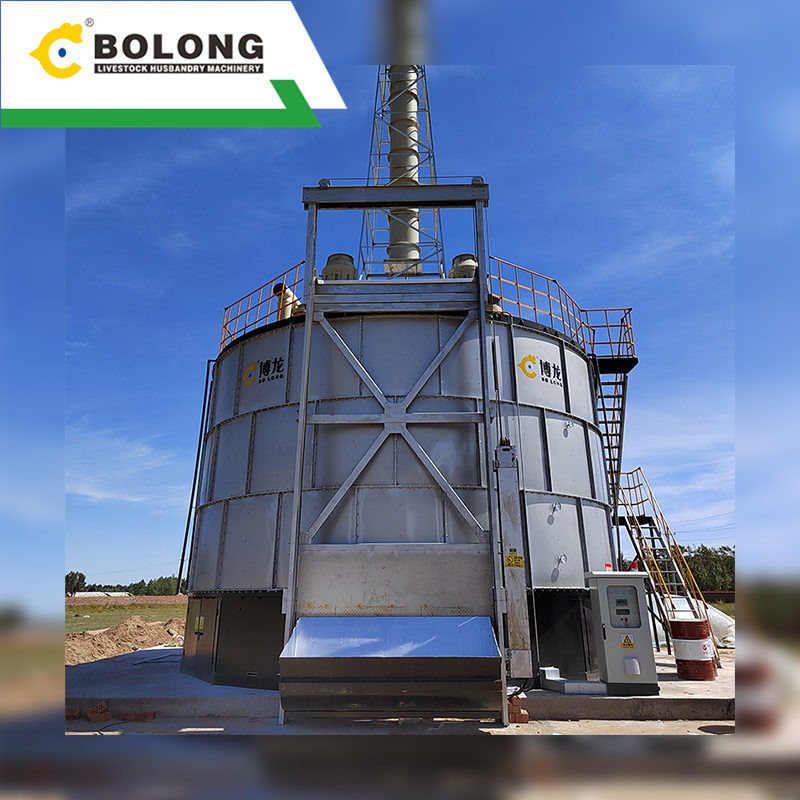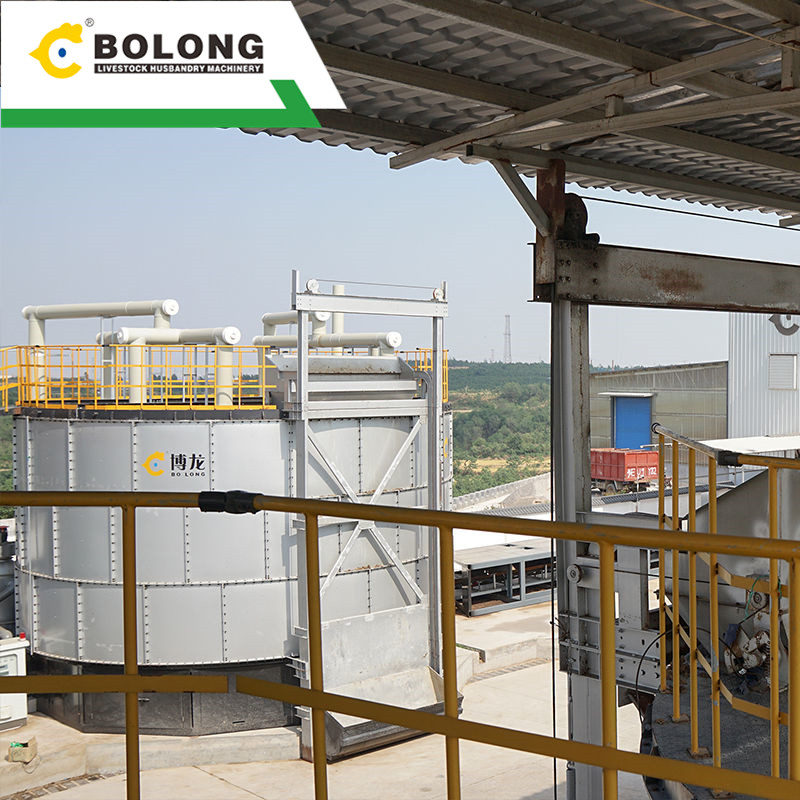With the development of modern agriculture and agriculture, environmental protection and the sustainability of resource utilization have become the focus of the industry. In this context, organic fertilizer composting machines, as an emerging technical equipment, are increasingly used in agriculture, which is of great significance to improving agriculture benefits, reducing environmental pollution and promoting the development of agricultural circular economy. This article will explore the role and importance of organic fertilizer composting machines in agriculture.
The development of agriculture has brought a large amount of animal manure, sewage and other organic waste. If these wastes are not effectively treated, they often cause serious pollution to the environment, especially water pollution and air pollution. A large amount of untreated livestock and poultry manure and wastewater entering rivers and lakes will not only lead to deterioration of water quality, but also spread epidemic diseases and affect the ecological balance. Moreover, harmful gases such as ammonia and hydrogen sulfide released during the decay of manure also seriously affect air quality and threaten the health of agriculture workers.
Therefore, how to deal with the waste generated in the agriculture process has become a major problem for the sustainable development of the agriculture industry. Traditional methods such as garbage accumulation and direct discharge are not only inefficient, but also impose a great burden on the environment. In this context, organic fertilizer composting machines, as a modern waste treatment equipment, provide an effective way to solve this problem.

Organic fertilizer composting machines are a type of equipment specifically used for the fermentation and treatment of organic waste, usually consisting of a closed container, ventilation system, temperature control system, stirring device and other parts. Its basic principle is to promote the decomposition of organic waste by microorganisms by controlling conditions such as oxygen, temperature and humidity, thereby converting the original fecal waste into organic fertilizer. Through this process, organic waste such as animal manure and straw generated in the breeding industry can not only be effectively treated, but also converted into nutrient-rich organic fertilizer for agricultural planting.
The main functions of organic fertilizer composting machines include:
By controlling temperature, humidity and oxygen supply, a suitable environment is provided to promote the fermentation and decomposition of organic waste. Harmful substances are effectively removed during the fermentation process, and the volume of waste is greatly reduced.
Since a large amount of gas is generated during the fermentation of organic waste, traditional stacking may cause odor. However, through the closed design of the organic fertilizer composting machine, the emission of harmful gases can be effectively controlled and the pollution to the environment can be reduced.
During the fermentation process, the increase in temperature helps to kill pathogenic microorganisms such as pathogens and parasites in the waste, thereby reducing the risk of disease transmission.
After the fermentation is completed, the remaining material is converted into organic fertilizer, which is rich in nitrogen, phosphorus, potassium and other elements required for plant growth, which can effectively improve soil fertility and reduce the use of chemical fertilizers.

Organic fertilizer composting machines reduce the pollution caused by direct discharge of waste into the environment during the breeding process by scientifically fermenting organic waste such as livestock and poultry manure. If the nitrogen, phosphorus and other elements in the manure are not treated, they will easily cause eutrophication of water quality after entering the water body, leading to environmental problems such as hypoxia in the water body and fish death. Through fermentation, these elements are converted into organic fertilizers, which not only avoids pollution but also improves the utilization efficiency of resources.
The manure treated by the organic fertilizer composting machine can be converted into high-quality organic fertilizer for use in farmland. This organic fertilizer can not only increase the organic matter content of the soil and improve the soil structure, but also increase the yield and quality of crops. For breeders, selling organic fertilizer can bring additional income to the breeding enterprise and increase its economic benefits.
Traditional farms often produce a lot of odor due to incomplete fermentation of manure accumulation, which affects the environment around the farm and the quality of life of surrounding residents. The closed design of the organic fertilizer composting machine can effectively reduce the spread of odor, improve the air quality of the breeding environment, and reduce the impact of environmental pollution on breeders and surrounding residents.
The application of organic fertilizer composting machines promotes the resource utilization of breeding waste and realizes the harmless, reduced and resource-based treatment of breeding waste. Breeding waste can not only be used to produce organic fertilizer, but also play an important role in agricultural production, thus forming a virtuous cycle of agriculture and breeding. For example, organic fertilizer from farms can be used as fertilizer for agricultural planting, and agricultural crop residues can be used as feed for farms. The two industries complement each other and promote the efficient use of resources.
In recent years, the country’s requirements for environmental protection have become increasingly stringent, and pollution control in the agriculture industry has become an important issue. The use of organic fertilizer composting machines complies with the country’s policy requirements for environmental protection and helps agriculture companies achieve green development. By effectively treating agriculture waste and reducing environmental pollution, companies can not only avoid environmental penalties, but also enhance their sense of social responsibility and corporate image.

The application of organic fertilizer composting machines in the agriculture industry solves the problem of agriculture waste treatment and is of great significance. It can not only effectively reduce environmental pollution and improve the sanitation of farms, but also improve agriculture benefits through resource utilization, which meets the requirements of sustainable development. With the advancement of science and technology and the promotion of environmental protection policies, organic fertilizer composting machines will be widely used in more agriculture companies, promoting the agriculture industry to develop in a more efficient, environmentally friendly and sustainable direction.